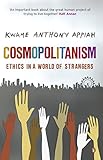承前*1
Sharon Begley “Don’t Blame the Caveman” Newsweek June 29 2009, pp.42-47
「進化心理学(evolutionary psychology)」って、略してEvo Psychっていうのか。
さて、これまで「レイプ」は進化生物学や進化心理学によって、進化論上の「適応(adaptation)」として正当化されてきた。例えば、Randy ThornhillらのA Natural History of Rape: Biological Bases of Sexual Coercion。議論は外から見ればかなり単純なもので、例えば「レイプ」は、望まない相手とも無理矢理セックスすれば自己のより多くの遺伝子を残せる(より多くの子孫を残せる)ので、「レイプ」は環境に適応した行為である。そこから、「レイプ遺伝子(rape genes)」なるものが仮定される(p.42)。しかし、進化心理学そのものが”indicator of conservatism”とか”pernicious right-wing conspiracy”(p.47)と見なされる風潮が強まる中、進化心理学の中でも、従来の性差別や暴力を正当化するような議論を覆す研究が出てきている。
例えば、南米パラグアイの狩猟採集民Acheを研究する人類学者のKim Hill。Ache社会では「レイプ」は殆ど見られないが、その理由を彼女は推論する。これも或る意味で常識的なもので、「レイプ」をしたら被害者の夫その他の親族の報復によって殺される危険がある。また、部族社会のような小さな社会では「レイプ」という出来事はpublic knowledgeとなり、「レイピスト」は村八分になり、(食料の調達など)「レイピスト」自身の生存が危機に晒される可能性が高い。また、「レイプ」の結果生まれた子どもは母親によって殺されたり、虐待されたりすることも少なくないだろう。以上のコストを計算すれば、自らの遺伝子をばらまくという利益を大きく上回る*2(p.43)。
また、進化心理学では、”men have a mental module to neglect and even kill their stepchildren”と主張されてきた(例えば、Martin DarlyとMargo Wilson)(p.46)。親に殺される子どもは、生物学上の子どもよりも継子の方が圧倒的に多い。しかし、実際に殺しているのは継親よりも生物学上の親の方が多いという反論がある。また、瑞典の或る研究によれば、継子殺しはシングル・マザーが再婚するときに初婚女性と較べてメンヘル系の男を掴まされる傾向が強いことを示しているにすぎないという。自らの遺伝子をより多く残すという進化心理学のドグマに従って考えても、継子の面倒をよく見る男性はその母親とセックスするチャンスが大きくなって、リプロダクションの最大化には有利だということになる。
それから、男性はウェストとヒップの比率が0.7の女性にもっともよく欲情するmental moduleを持っているという進化心理学の主張(p.45)。しかし、ペルーやタンザニアにおける、マス・メディアとの接触のすくない人々に対する調査では、男性がそのような「漏刻女(hourglass women)」を病的に見えるとして忌避する傾向が強い。また、Current Anthropologyに掲載されたElizabeth Cashdanの論文によると、女性の経済的自立度が高い西側社会(英国、丁抹)と女性が食料採集の責任を負っている一部の非西側社会では、より太めの女性が好まれ、女性の経済的自立度が低い西側社会(日本、希臘、葡萄牙)ではより細めの女性が好まれ、米国はちょうどその中間であるという。
「進化心理学」について;
また、”Short of a time machine, the hypothssis was impossible to disprove.”(p.44)
(…) this field asserts that behaviors that conferred a fitness advantage during the era when modern humans were evolving are the result of hundreds of genetically based cognitive “modules” preprogrammed in the brain. Since they are genetic, these modules and behaviors they encode are heritable—passed down to future generations—and , together, constitute a universal human nature that describes how people think, feel and act, from the nightclubs of Manhattan to the farms of the Amish, from the huts of New Guinea aborigines to the madrassas of Karachi. Evolutionary psychologists do not have a time machine, of course. So to figure out which traits were adaptive during the Stone Age, and therefore bequeathed to us like a questionable family heirloom, they make logical guesses. (…) (p.43)
「進化心理学」、そのmental moduleという説に対しては、環境の可変性を軽視しているという批判がある。例えば、”Evolutionary stories of human behavior make for a good narrative, but not good science.”という進化生物学者のMassimo Pigliucci。
Like other critics, he has no doubt that evolution shaped the human brain. How could it be otherwise, when evolution has shaped every other human organ? But evo psych’s claims that human behavior is constrained by mental modules that calcified in the Stone Age make sense “only if the environmental challenges remain static enough to sculpt an instinct over evolutionary time,” Pigliucci points out. If the environment, including social environment, is instead dynamic rather than static—which all evidence suggests—then the only kind of mind that makes humans evolutionary fit is one that is flexible and responsive, able to figure out a way to make trade-offs, survive, thrive and reproduce in whatever social and physical environment it finds itself in. (…) there is no universal human nature as evo psych defines it. (pp.44-45)
Where, then, does the fall of evolutionary psychology leave the idea of human nature? Behavioral ecology replaces it with “it depends”—that is, the core of human nature is variability and flexibility, the capacity to mold behavior to the social and physical demands of the environment. As Buller*3 says, human variation is not noise in the system; it is the system. To be sure, traits such as symbolic language, culture, tool use, emotions and emotional expression do indeed seem to be human universals. It’s the behavior that capture the public imagination—promiscuous men and monogamous women—that turn out not to be. And for a final nail in the coffin, geneticists have discovered that human genes evolve much more quickly than anyone imagined when everyone assumed that “modern” humans had DNA almost identical to that of people 50,000 years ago. Some genes seem to be only 10,000 years old, and some may be even younger. (p.47)
Human universalについては、Kwame Anthony Appiah(Cosmopolitanism)での議論をマークしておく*4。

Cosmopolitanism: Ethics in a World of Strangers
- 作者: Kwame Anthony Appiah
- 出版社/メーカー: Penguin
- 発売日: 2007/11/01
- メディア: ペーパーバック
- クリック: 4回
- この商品を含むブログ (7件) を見る
*1:http://d.hatena.ne.jp/sumita-m/20090616/1245178653
*2:リプロダクションの最大化ということは、「レイプ」の被害者に「生殖年齢」ではない10歳未満の子どもや60歳以上の老人が屡々含まれることからも怪しくなる。
*3:David Buller. 哲学者。